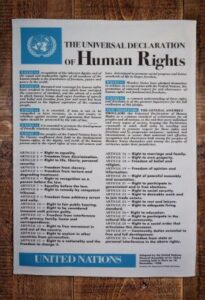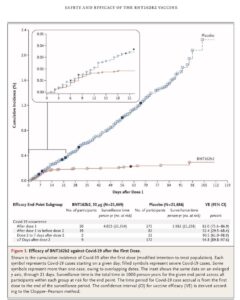Very sad, indeed.
December 10, 2020Dear Dayle,
We have some very sad news to share. As of January 1st 2021, The Correspondent will discontinue publishing its journalism. As a paying member, you will automatically receive a full refund for the remainder of your membership in the first weeks of the new year. All published articles will remain available online, but there will be no new articles from the new year.
We are incredibly grateful for your support.
Here we will explain what led to this decision, and detail how we intend to close The Correspondent in a responsible way.
The decision to discontinue The Correspondent was made due to financial setbacks, making our English language newsroom financially unsustainable. In the past three months we’ve seen a marked increase in membership cancellations, with members often citing increased insecurity in their personal financial situation. The average membership fee paid also lagged behind budgetary needs.
Unfortunately, we were unable to demonstrate the value of The Correspondent’s journalism to a significant enough number of members. With the Covid-19 pandemic dominating headlines non-stop for much of the year, it proved very difficult to offer “unbreaking news” to members in over 140 countries. People want to know from their media source: “Is my kid’s school going to be closed tomorrow and when will I be eligible for a vaccination?” While essential, this is not the kind of journalism we were set up to do. We were focused instead on transnational issues.
We tried, we gave it our all but we didn’t succeed.
We are very sad to say goodbye to the amazing colleagues who make up The Correspondent, and who have done an absolutely amazing job in a year of global unrest. They were a bright shining light in times of increasingly dark headlines, and we are incredibly proud of the journalism they produced, in collaboration with members. We can’t recommend them highly enough to future employers.
The Correspondent’s staff will be offered a severance package and transition fee in accordance with Dutch labour law. Freelance staff will be paid in full for the work that is still to be published between now and the end of the year. The Dutch union for journalists has been informed about the closure of the newsroom. Several Dutch staff members who worked for The Correspondent part-time will continue working for De Correspondent as of January 1st. Our Dutch journalism platform, De Correspondent, is a different and financially healthy entity that will continue its operations.
We want to thank you, all our members, from the bottom of our hearts for supporting us. You have made a dream come true by becoming a member of our ad-free journalism platform and we hope you will continue to support independent media in the future. For inspiration, you can visit the Membership Puzzle Project, a New York University initiative that keeps track of membership-based journalism platforms all around the world.
If you have any questions regarding your membership or related topics, please see the FAQs below. If your question is not answered there, do not hesitate to reach out to us in the comment section, or via hello@thecorrespondent.com.
We are now completely focused on winding down The Correspondent in a responsible way. It’s too early for us to properly reflect, but we will do so in the near future and share our lessons learned.
Thank you for being part of this amazing community,
Rob Wijnberg & Ernst-Jan Pfauth
co-founders of The Correspondent
[Early supporter. Stellar correspondents and reporting. Long-form journalism is tough in a world of sensational news and clickbaits. Thank you for trying. Well done. -dayle]
Human Rights Day
Radical Tea Towel
“All human beings are born free and equal in dignity and rights…”
By Pete Morgan
‘It was the intent of the Allied peoples, encouraged especially by Franklin Roosevelt, that a permanent organization of cooperation between states was needed to avoid yet another descent into world war.
In addition to questions of funding and logistics, the new UN needed a set of basic ideals – a statement of what it stood for.
This came most clearly in the Universal Declaration of Human Rights, adopted by the UN General Assembly on this day in 1948.
A year after the end of the war, the UN’s Commission on Human Rights set up a drafting committee for an ambitious, universal declaration.
The committee was chaired by no less than Eleanor Roosevelt herself. The former First Lady had long been a champion of human rights within the US and around the world, and here was her chance to help craft the soul of the United Nations.’
#HumanRightsDay ♥
🍋
Pantone, the color bible, announced that the Color of the Year 2021 combines Ultimate Gray + Illuminating — a mood of “strength and hopefulness.”
- Vanessa Friedman, the N.Y. Times chief fashion critic, had the perfect translation: : “light at the end of the tunnel.”
[AXIOS]
Santa is essential.
Quote of the Day:
“This year, I would like end of Covid-19, world peace, climate control, new Xbox.”
-A child’s later to Santa.
Let’s cross off some of those items together. @theskimm
“There is an ugliness and cruelty in our national rhetoric that is reaching a fevered pitch here at home, and that should worry us all. And, above all, I am terrified about the virus current trajectory.”
@IdahoCOVID19
“COVID-19 was the number one cause of death sin Idaho in November. In multiple counties the morgues are full and they are starting to ask for refrigerated trailers to hold bodies.” -Idaho Statesman
But no mask mandate. Because asking nicely is working so well. -dayle
https://www.idahostatesman.com/news/coronavirus/article247749790.html
On Wednesday, Idaho health districts reported a single-day high of 2,231 new coronavirus cases — 1,840 confirmed and 391 probable. Ada County alone reported more than 1,100 new COVID-19 cases in the past two days. A record 37 deaths were reported Wednesday, with counties across Idaho reporting fatalities connected to the coronavirus.
[…]
[Image: AP]
On Tuesday, hundreds of protesters gathered outside the Central District Health office while district board members attempted to discuss a public health order. Because the meeting was ended for safety, the board never voted on the order, which could have mandated masks in Boise and Elmore counties in addition to existing mandates in Ada and Valley counties.
The following day, Lee announced three arrest warrants in connection with protests that took place outside of board members’ homes, including that of Ada County Commissioner Diana Lachiondo. The commissioner abruptly left the virtual meeting after she received a call from one of her children, who told his mother there were protesters causing a disturbance outside their home.
Lachiondo, a Democrat, later responded in a Facebook post, calling on Little to “act boldly and with conviction,” and do what’s necessary to limit the coronavirus spread. She also called on other Republican leaders who have “politicized public health, who have amplified rhetoric, capitalized on it, tacitly endorsed it while holding hands with the most extreme factions in their party: take a hard look at what you’ve become. It’s far past time to do better.”
Heartbreaking.
Washington Post
(Image: Mikyung Lee for The Post)
Stealing to survive: More Americans are shoplifting food as aid runs out during the pandemic
Retailers, police departments and loss prevention researchers are reporting an uptick in theft of necessities like food and hygiene products.
[Headline only; adverse to paywalls and subscriptions for news and information that should be free for everyone, not only for those who can afford. So I do not subscribe. -dayle]
Instead of two shots, should we be doing one so more are vaccinated, with 65% efficacy instead of 95%?
Vaccines and Decision-Making with Imperfect Data
It’s trade-offs all the way down
|
|
The peer-reviewed paper outlining data from the Pfizer/BioNTech vaccine was just released, as at type, the FDA is holding a meeting which will almost certainly provide emergency authorization for this vaccine. As the editorialaccompanying the paper said, the results are “a triumph.” It’s only December, and we are about to launch mass vaccination with ~95% efficacy in preventing disease—likely even higher for preventing severe disease. Remember that as late as April of this year, experts (including Dr. Fauci) thought 18 months to two years was too optimistic a timeline for a vaccine, and the FDA was ready to approve a vaccine with only 50% efficacy.
Instead, what we have is a vaccine ready at half the time the most optimistic timeline projected, with twice the efficacy hoped for. It’s remarkable.
There’s a lot more to be said, but here’s something that jumped at me while looking at the paper at The New England Journal of Medicine, as well as the files submitted to the FDA. Look at that chart below, comparing detected disease between those in the vaccine and placebo group.
Eyeballing (we don’t have the underlying data), the first shot seems to have 65-80% efficacy in the full group—but we don’t know for how long that lasts. Hence, we have durability of immunity data—for three more months, to day 119—only with the booster shot.
Given the shortages, the potential for single dosing—at least for some populations—or more time between the doses is an important question. It’s possible that a single dose—one that can cover twice the number of people—would provide a significant benefit to the recipients, though we would be unsure about whether the immunity protections last as strongly three months later. This is no minor question. The United States is already planning to withhold vaccination from people unless a second shot has already been secured. If we get fifty million doses now, that’s 25 million people who could be vaccinated now who won’t be even though the doses are sitting in storage.
What should the policymakers do? This seems like a scientific question, but it is not pure science because there are trade-offs on all sides. The question is confronting the dilemmas of not vaccinating millions of people versus vaccinating a smaller group with higher efficacy; and risking a second wave if immunity wears off quickly in an unexpected way. What about trust in vaccines? Can we even do anything that veers, even slightly, from the protocols, let alone something as major as booster timing? Is 60-80% efficacy vaccination for 200 million is better than 95% for 100 million? Given how terrible the next few months look to be, how do we prioritize what we do first? Can we space the booster a bit while we wait for longer-term data? We can model some of what this means depending on who’s vaccinated and whether people adhere to distancing or quarantines after vaccination, but we can’t easily decide which is better without bringing in ethical preferences and thorny questions.
However, at a minimum, we should continue testing as we vaccinate.






